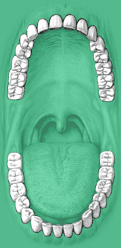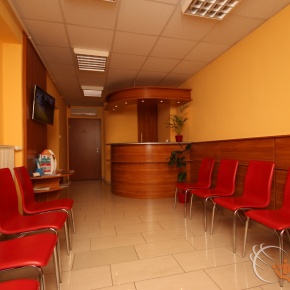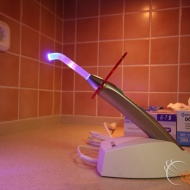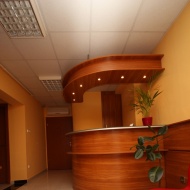As the structure is fixed, it means conventional flossing cannot be performed so time is spent instructing on the use of special flossing technique and practices to maintain health in the surrounding anatomy.
Bridge is a dental device that fills a space that a tooth previously occupied. A bridge may be necessary to prevent:
- Shifting of the teeth that can lead to bite problems (occlusion) and/or jaw problems and resultant periodontal disease.
- Bridges safeguard the integrity of existing teeth and help maintain a healthy, vibrant smile.
There are 3 main types of bridges, namely:
- Fixed bridge- this is the most popular and consists of a filler tooth that is attached to two crowns, which fit over the existing teeth and hold the bridge in place.
- The “Maryland” bridge is commonly used to replace missing front teeth and consists of a filler that is attached to metal bands that are bonded to the abutment teeth. The metal bands consist of a white-colored composite resin that matches existing tooth color.
- The Cantilever bridge is often used when there are teeth on only one side of the span. A typical three-unit cantilever bridge consists of two crowned teeth positioned next to each other on the same side of the missing tooth space. The filler tooth is then connected to the two crowned teeth, which extend into the missing tooth space or end.
Bridge vs dental implants
When considering bridge vs dental implants we must take the following factors into account:
- Jaw bone resorbtion – Treatment with a dental implant vs bridges involves placing implants in areas where there are no teeth and by so doing, the bone area is stimulated again and this prevents long term bone loss in that area. If a bridge that connects 2 teeth is used instead of a dental implant, pressure is not applied on the jaw bone! Therefore the bone is not stimulated and begins to shrink away. Conclusion – dental implants preserve the underlying jawbone.
- Improved oral health – Dental implants do not affect your other healthy teeth, more of your own teeth are left intact. A bridge, on the other hand, may require the cutting down of healthy, adjacent teeth in order to support the bridge structure.
- Durability – a permanent solution to tooth loss is offered with dental implant vs bridges, which have a life expectancy of only 10 years. Implants bond to the jaw bone and become part of it – this connection is as strong as a natural tooth root. Using a bridge relies on the side forces applied on the adjacent teeth and on the bridge’s structure. When using bridge vs dental implants, you support your structure on natural teeth that are still vulnerable to decay and other diseases, implants on the other hand cannot develop any diseases since they are made of titanium.
- Oral hygiene – Individual dental implants allow easier access between teeth, enabling everyday normal dental care. Flossing bridges is not an easy task and requires time and patience, making it a tiresome process. This fact eventually will give an advantage to the implants by enabling improved everyday oral hygiene.
- Esthetics – A dental implant vs bridges looks good due to modern technology allowing dentists to achieve results that look exactly like natural teeth. When comparing between bridge vs dental implants, the conclusion is clear! Dental implants always look better than bridges.
- Treatment plan flexibility – Dental implants enable more flexibility in planning a treatment plan than bridges. As a matter of fact, in many cases only implants can be used and bridges are not an option! Example – when a few teeth are missing in the same site.
- Price – The price of a bridge is cheaper than a dental implant solution. But when thinking about the long run – you must realize that implants will be a cheaper option after all! Because of the low durability of the bridges and complications that might occur, additional expenses await you down the road.
After considering a bridge vs dental implants and taking all the factors onto account – it is quite clear that the dental implants solution is preferable. Even though the initial price is higher, in the long run it is actually a cheaper alternative.




